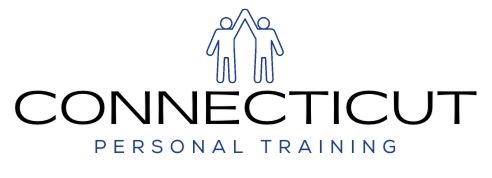In the modern world where people live at a fast pace, weight management has become a key issue among the people. Having hectic timetables, lack of time to work out in the gym and with a myriad of diets in the market, it comes as no surprise that people are seeking more convenient and customized solutions. One of the most accessible and effective methods of facilitating healthy weight goals with the help of technology is digital weight management.
Digital weight management includes the application of technology to track, coach and support weight loss or weight maintenance goals, through the use of mobile applications, wearable devices, virtual coaching and online programs.
Rather than just using face-to-face consultations or old-fashioned diet books, digital tools offer live feedback, customized suggestions and are more convenient, all in the palm of your hands (on your smartphone or laptop).
This article discusses the concept of digital weight management, its functionality, and why the practice is increasingly becoming the choice of millions of individuals in the United States.
Why Is Digital Weight Management So Popular?
There are a few key reasons why digital weight management has grown in popularity:
Convenience: You can get support 24/7, you do not need to make schedules or go into your house.
Personalization: The majority of online applications are providing data to customize meal plans, exercise routines, and lifestyle recommendations.
Motivation & Accountability: A number of apps have such features as goal tracking, community forums, and progress updates to ensure that the users are on track.
Affordability: Digital plans are in many cases cheaper compared to traditional weight-loss programs or help from personal trainers.
Key Components of Digital Weight Management
Now, the main components of an effective online weight management program can be dissected down.
Mobile Apps
Digital weight management relies on the use of apps. Popular applications, such as MyFitnessPal, Noom, and WW,
They provide various options:
- Calorie tracking
- Exercise logging
- Meal planning
- Weight tracking
- Personalized goals
These applications aid users to be conscious of the food they consume as well as their daily activity levels.
Wearable Devices
Fitbit, Apple Watch, or Garmin are the major competitors in the field of digital health.
They provide data on:
- Steps taken
- Calories burned
- Sleep patterns
- Heart rate
- Activity level.
Wearables provide people with a more detailed insight into their health and progress, and they do it by integrating with apps.
Virtual Coaching & Support
Lots of online weight management applications provide virtual coaching, either in real-time via chat or video, or via AI-based messaging.
These coaches provide:
- Motivation
- Nutrition advice
- Personalized feedback
- Emotional support.
There are also programs that involve access to registered dietitians, fitness trainers or mental health professionals.
Online Communities
It is essential to have a support system to be successful in the long run.
The digital platforms may encompass:
- Private groups
- Forums
- Social challenges
- Peer support.
Such communities keep users motivated and exchange experiences, tips or hardships.
How Does Digital Weight Management Work?
The digital weight management tends to proceed in the following steps:
Step 1: Assessment
Most applications when you register require you to answer questions regarding your:
- Age, gender, and weight
- Health conditions
- Activity level
- Goals (weight loss, weight gain, weight maintenance)
Step 2: Personalized Plan
According to your data, the app or program develops the tailored plan that can consist of:
- Daily calorie targets
- Recommended foods
- Suggested workouts
- Knowledge (such as lifestyle change, such as sleep or stress management)
Step 3: Daily Tracking
- You can track your meals, exercise, weight and even your mood or sleep.
- This assists you and the app to keep track of your progress and make changes in your plan accordingly.
Step 4: Progress Monitoring
Reminders, Charts, and weekly reports can make you realize your progress, celebrate your victories, and address what should be improved.
Benefits of Digital Weight Management
The benefits of weight management using digital tools are the following:
Flexibility
Digital tools allow you to work at your time and comfort- you can work either at home, work or even on vacation.
Real-Time Feedback
Live data and analysis assist users to make wiser choices concerning food and fitness.
Behavior Change Support
The apps such as Noom emphasize psychology and habit formation that are essential in long-term success.
Improved Accessibility
Although you can be a big city resident or a country resident, with the help of digital tools, you can have an expertise and help on your fingertips.
Challenges and Considerations
While digital weight management offers many benefits, there are a few things to keep in mind:
Data Accuracy
The number of calories or steps could be inaccurate. One should not take these tools as absolutes.
Screen Time
Excessive, over the use of screens may be a disadvantage particularly when it interferes with sleep or exercise.
Motivation Over Time
Certain users lose their interest within a few weeks. It is possible to select the platform that has reminders, challenges, or a coach to keep motivated.
Privacy Concerns
Always look into the way an app manages your health information. Find sites which are HIPAA compliant.
Who Should Use Digital Weight Management Tools?
Digital weight management is suitable for:
- Busy professionals.
- Time-starved parents.
- People new to weight loss.
- The accountability seeking individuals.
- Anyone who prefers self-paced, tech-supported wellness plans.
However, if you have serious health conditions like diabetes, heart disease, or eating disorders, it’s important to consult a healthcare provider before starting any program.



